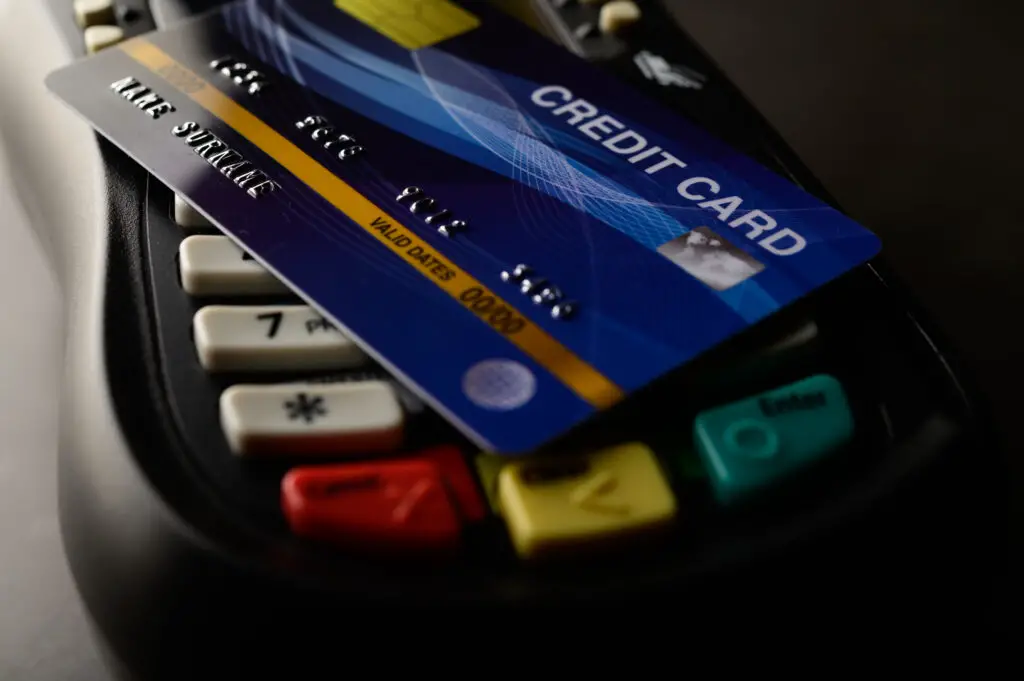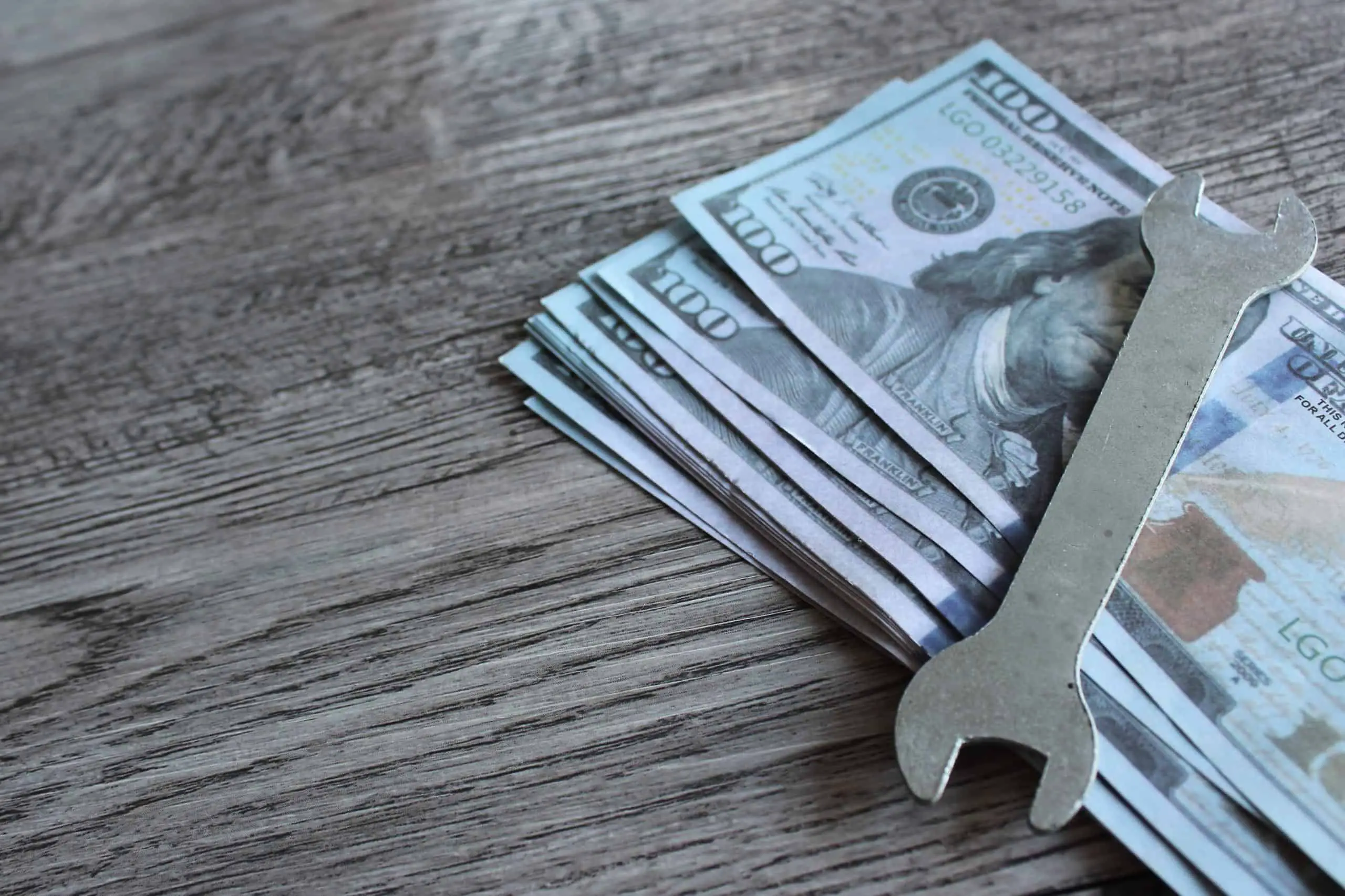Which Credit Bureau Does Chase Use?
Qualifying for one of the Chase credit cards might not be as easy as it seems. Besides having a good credit score, you also might want to know which credit bureau does Chase use when making a final decision on your creditworthiness.
Chase relies on credit reports from all three major credit bureaus, but it depends on several factors. So, sit tight and stay tuned if you want to know about the specifics on credit bureaus that Chase uses for different locations and credit cards, as well as how to increase your chances of approval!
Why Should You Care What Bureaus Chase Uses?
Every credit bureau uses a different credit scoring model, so it would come in handy if you knew the bureau that Chase uses to assess your reports. This way, you could request your annual free credit report and check the credit score and the report items relevant for that particular bureau.

This way, you’ll at least know that you don’t qualify for the specific type of credit card you wish to apply for, and you won’t have to risk receiving a hard inquiry in vain. Having a good credit score is a must when applying for any Chase card, but it gets a bit easier if you know about the bureaus beforehand.
It seems that the bureaus that Chase uses vary based on your location but it’s the first thing to look into.
The second thing is related to the type of credit card you are applying for since they issue credit cards using credit report details from different bureaus.
We’ll get into all that below.
Major Credit Bureaus That Chase Uses
You can get Chase credit cards based on reports that the bank gets from the three major credit bureaus – Equifax, Experian, and TransUnion. While the bureaus use the same type of information to evaluate your credit score, there could be a certain variance in credit scores depending on the credit report.
However, Chase seems to rely on Experian’s reports a bit more when compared to the other two bureaus. So, it’s a safe bet that you should check your free annual credit report from Experian before applying for their cards.
Truth be told, the bank mostly uses two credit reports to compare the data and you might not be completely safe by just checking Experian’s report. Sadly, like other major banks, Chase doesn’t make these details public. Still, we gave it the best we could to bring you the details by taking a look at the information that people posted about the bureau that Chase used to pull their credit reports from.
We divided the list into two categories – bureaus that Chase mostly uses by the state, and by the type of credit card you wish to apply for.
Credit Bureaus Used By Chase Based On The State
By taking a look into the data provided by Chase clients on CreditBoards.com, we just confirmed the statement that the credit bureau Chase uses the most is Experian. So, to avoid confusion, we won’t mention all the states in which Chase relies on Experian’s report. To make the list shorter and more concise, we’ll just list the states where Chase relies on other credit bureaus when it comes to the assessment of your creditworthiness.
Chase Relies On All 3 Credit Bureaus In These States
- California
- Florida
- Georgia
- Kentucky
- New Hampshire
- Ohio
- Pennsylvania
- Texas
- Virginia
Chase Uses Experian and Transunion In These States
- Colorado
- Illinois
- Indiana
- Mississippi
- New Jersey
- New York
States Where Chase Mostly Pulls Equifax Reports
- Alabama
- Arizona
- Idaho
- Maryland
- Minnesota
- Nevada
- Oregon
- South Carolina
- Tennessee
- Washington
Your best shot of getting approved for Chase credit cards, in this case, would be to get a free copy of all three credit reports and see how you do on each one of those.
Credit Bureaus Used By Chase Based On Credit Cards

If you’re looking for a particular Chase credit card it may help to know which credit bureau they favor in this case.
Luckily, there are three such cards we really like here at Spendster – the Chase trifecta cards. These include the Chase Freedom card, Chase Freedom Unlimited, and Chase Preferred/Reserved card.
What Credit Bureau Does Chase Use For the Freedom Card?
If you plan on applying for the Chase Freedom card, your chances of acceptance grow if you know the exact bureaus that the bank uses. So, it could come in handy to know that Chase mostly uses TransUnion to bring up your credit report with the Chase Freedom card application.
States, where Chase relies on credit reports from Equifax and Experian for Freedom Card applications, are as follows:
- Arizona
- Arkansas
- Connecticut
- Delaware
- Georgia
- Iowa
- Louisiana
- Minnesota
- North Carolina
- Oregon
- Utah
- Wisconsin
- Washington
Credit Bureaus That Chase Uses For Freedom Unlimited Card
Things do get a bit easier with the Chase Freedom Unlimited card since the card is an official partner with Experian. Though it’s not out of the question for the bank to use your credit report from TransUnion or Equifax for this card as well, but it’s rare.
It’s best if you pull Experian’s report before applying for this Chase credit card. This particular card gives you a 5% cash back on travel and bonus categories, so pulling the right credit report before you apply for it might pay off in the long run.
Credit Bureaus That Chase Uses For The Preferred Card
If you want to apply for the Chase Sapphire Preferred card, your best bet is to pull the Equifax report. The bank mostly relies on Equifax reports for this card type, and there are several exceptions in terms of states where it pulls combined reports from Equifax and Experian:
- Arizona
- Florida
- Georgia
- Louisiana
- Ohio
- Tennessee
- Texas
- Washington
On the other hand, TransUnion reports are much rarer for this type of Chase credit card.
It’s mostly in states like California, Illinois, Massachusetts, Michigan, New Jersey, Ohio, Pennsylvania, and Wisconsin that the bank uses TransUnion reports.
How To Improve Chances Of Acceptance On Chase Credit Cards
Chase mostly relies on Experian as the main credit bureau it uses to pull your credit records. See above to check if that is the case for your state and/or the card you’re applying for.
However, there are also a few other things that you should consider along with the list of bureaus.
Surely, you can get your chances of acceptance boosted by just knowing the bureaus that the credit card issuer relies on for specific cards and in specific states.
But, you should still at least take a look into these rules that Chase often uses to determine your eligibility for qualifying for a card:
- The 5/24 rule
- Credit history length
- Credit score
So, seeking the bureaus that the credit card issuer relies on the most is just the first step in getting accepted.
Number Of Inquiries Is Important
The next important step is to ensure that the 5/24 rule is fulfilled. In a nutshell, Chase is one of those credit card issuers that considers much more than just your payment history from your credit report.
They will most likely decline your request to qualify for a credit card if you’ve sent more than 5 inquiries over the past 24 months.
So, to get ready for qualification, you should ensure that you checked the credit bureau that the bank relies on for your particular type of credit card and that you didn’t send more than 5 inquiries for the previous year.
Chase tends to automatically decline any applicants if they applied for more than 5 credit cards in the previous 24 months, regardless of the card type, issuer, or credit score.
Make Sure That Your Credit History Has Some Background
The next step is to make sure that you have a lengthy credit history, Chase is not the bank you want to look for, and consider, if you are just applying for your first credit card. In essence, they want you to have at least 9 months of credit history before they consider your application.
So, if you want to get a Chase credit card as soon as possible, you have the best chance of qualifying if you get a secured card before it. This way, you’ll show the bank that you are capable of fulfilling your obligations within the given credit limit, and after 9 months, you might be able to qualify for the Chase Freedom card.
Credit Score Is Important
Your FICO score is also one of the most important factors when applying for a Chase credit card. If you want to have the highest chance of acceptance, you should have a credit score of 680 or higher.

Chase accesses your credit score from the bureaus that they pull credit reports from. So, It also helps if you have the best guess of which bureau they use for specific types of credit cards. The good news is – you can use our guide to find this information, and the only thing left for you to do is wait until your FICO score is ideally around 700+.
Chase credit cards come with many benefits, such as cash back, and possibly a 0% APR rate during the first 15 months from opening an account.
Before applying for their card you should start by checking our guide to see which credit bureau they’re most likely to use. The next steps involve checking your eligibility by applying for no more than 5 credit cards in the previous 24 months and making sure that your credit score is at least 680 or higher.
Final Thoughts
Overall, there was one big question troubling potential applicants with Chase credit cards – which credit bureau does Chase use? After reading this guide, you now have all the handy information on the bureaus used by Chase to determine your creditworthiness.
Hopefully, you can also use the remaining details on how to qualify for a Chase credit card to make sure that your application has the best chance of being successful.
Frequently Asked Questions (FAQ):
What credit bureau does Chase use for approval?
Chase mostly uses Experian for credit card approvals. However, the bank also often uses TransUnion and Equifax reports, and in some states, they even compare two of them or even all three credit reports. Take a look at our list to find out about the exact credit bureau that Chase uses based on specific states and credit card types.
What credit score do you need for getting a Chase credit card?
You need a credit score in the range of at least FICO 680 to 700 to qualify for most Chase credit cards. Chase is among credit card issuers that tend to automatically decline your application in case your credit score doesn’t suffice.
Why is my Chase credit score different from Experian's?
Credit card issuers tend to offer you a chance to check your credit score before you apply for the card. So, you might notice that the credit rating shown by the bank isn’t the same as Experian’s or the one of another bureau. Credit scores can range drastically from one card issuer or bureau to another, based on the scoring model that they use.
What are the easiest Chase credit cards to get?
You have the highest chances of qualifying for a Chase card with one of their trifecta cards. These are the Freedom, Freedom Unlimited and Sapphire Preferred cards.


